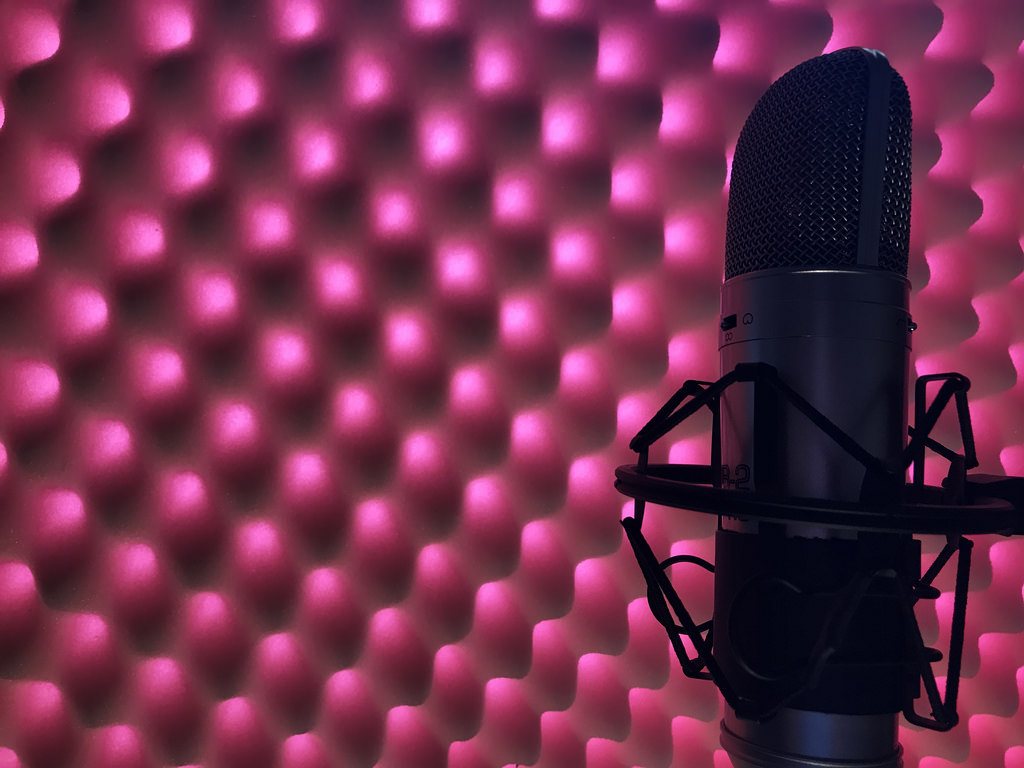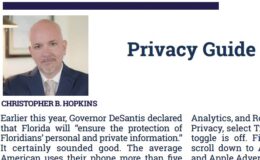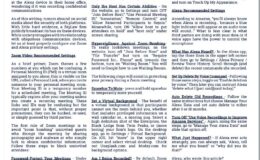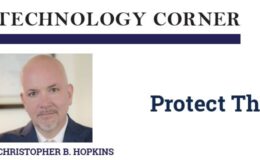Can You Record Someone in Florida?
- By : Cbh
- Category : 4th Amendment, Privacy

The question of whether you can record someone’s conversation in Florida arises frequently. The answer lies first in a statute and second on the individual circumstances. As a general rule, secretly recording someone in Florida is not going to lead to admissible evidence and could get the person who did the recording in criminal trouble. It does not matter how “good” the admission on the recording may be.
Here’s the two step process to understand how Florida law works.
First step: the statute is Florida Statute 934.06. It says:
934.06 Prohibition of use as evidence of intercepted wire or oral communications; exception.—Whenever any wire or oral communication has been intercepted, no part of the contents of such communication and no evidence derived therefrom may be received in evidence in any trial, hearing, or other proceeding in or before any court, grand jury, department, officer, agency, regulatory body, legislative committee, or other authority of the state, or a political subdivision thereof, if the disclosure of that information would be in violation of this chapter. The prohibition of use as evidence provided in this section does not apply in cases of prosecution for criminal interception in violation of the provisions of this chapter. (emp. added)
In short, Florida requires “two party consent” for recording someone. That means the speaker needs to consent to the other person recording. Otherwise, it cannot be used in trial and, perhaps more importantly, it is a crime.
This comes up frequently in criminal cases as well as divorce matters. Often, the recording-party is hoping to “get the goods” on the speaking-party by recording the speaker without his or her knowledge. Under most circumstances involving trickery, it likely will not work since the recording will not be admitted into evidence against the speaking-party. And, again, by offering up a recording, the recording-party is exposing himself/herself to criminal charges.
For our second step: the application of the statute depends on the circumstances.
The general rule is that, for a recorded statement to be “protected” by the statute, (a) the speaker must have an actual subjective expectation of privacy and (b) society must recognize that the speaker’s expectation is reasonable. Location, the type of communications, and the manner in which the communication was made are all elements.
So let’s see how that works in three varying circumstances:
McDade v. State (Florida Supreme Court 2014): in this child abuse case, a recording of the solicitation and confirmation of child abuse was surreptitiously made in the defendant’s bedroom (in his house). From the opinion, it appears clear that, if the recording were admitted in the criminal case, it would be damning. However, the recording was not admitted because the defendant-speaker did not know he was being recorded and had a reasonable expectation of privacy in his own house. This is an example where an attempted “secret recording” did not work.
Belle v. State (Florida Second District, 2015): in another child abuse case, the defendant was recorded on an iPhone saying “I’m going to play with your f***ing daughter” followed by a recording conversation between the defendant and the child (as well as other sounds) which, if admitted, would likely support a child molestation charge. In that case, the facts were stipulated, which makes this an odd situation; that said, the facts include: in the home, the defendant had a conversation with the child’s mom over an unrelated dispute and she told him that she was going to record it with her iPhone; she then left the house; the defendant takes possession of the phone; and then proceeds to interact with the minor while the device continues to record. The next day, the mother finds the recording.
Unlike McDade, however, the recording was admitted in the case against the defendant because (a) the mother did not “intentionally intercept” the subsequent conversation between the defendant and the child (as required by the first sentence of the statute) and (b) the recording was not surreptitious nor hidden.
State v. Daylen Caraballo (Florida Second District, 2016): in this theft case, a security camera captured “recorded statements apparently containing admissions by [Defendant].” In this case, the Defendant worked at a cellular phone store and was confronted at a reception area, during business hours, near one of several cameras which blink while recording. Worse, the Defendant was aware of the video cameras and there was a notice posted that “this business is under 24-hour video and audio surveillance.” Under those circumstances, she did not have a reasonable expectation of privacy and the recording was admitted.
Take-away lessons — beware of trying to secretly record another person in Florida. It likely will not be admitted in court against the speaker and, worse, the person recording could get into criminal trouble. Consult a qualified lawyer experienced in privacy issues before proceeding with taking or using such recordings.
Image credit: Victor via Flickr


